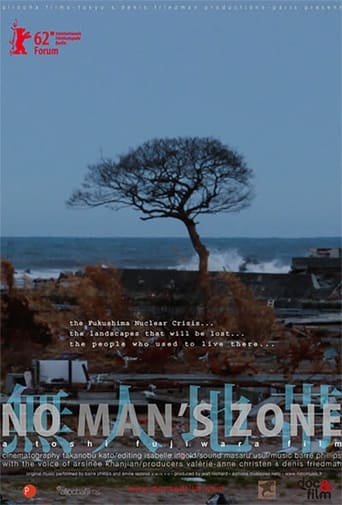StyleSk8r
At first rather annoying in its heavy emphasis on reenactments, this movie ultimately proves fascinating, simply because the complicated, highly dramatic tale it tells still almost defies belief.
Avery Hudson
Mujin chitai (No Man's Zone) is one of three films in this year's Forum documenting the human and environmental fallout of the Fukushima Daiichi nuclear plant explosions following the earthquake and tsunami of 11 March 2011.In defiance of a 20-kilometer "security zone" established by the government, ostensibly to protect the people from radioactive contamination, filmmaker Fujiwara Toshi traveled from Tokyo to Fukushima 40 days after the initial disaster.Toshi recalls having little knowledge or interest in the source of his electricity before the Fukushima disaster. Indeed, unlike Western countries, where nuclear plants are prominently visible icons on the landscape, Japan designs them to be unobtrusive, barely noticeable above the treetops.Similarly, survivors seem to have been invisible in the days and weeks following the initial disaster. We learn that a month passed without earnest rescue efforts. Survival would have been much higher if the work had begun within 72 hours. Bodies were left abandoned in the open air for as long as 75 days, flouting age-old rituals of death and honor to ancestors.Plant workers acknowledge their happiness for the prosperous life the plant gave them, while admitting a "conspiracy of silence," when fear of losing jobs and contracts muzzled reports of problems and concerns.Farmers and fishermen have nothing to do. Some return to feed animals and check on property. We hear a mantra: "If there weren't that nuclear plant." "In the belief that nature exists just for us humans, we accepted the nuclear plants." Almost all the farmers around Fukushima Daiichi worked at least part-time for TEPCO, the Tokyo Electric Power Company. Now they are a people in forced exile.In a beautiful mountain region 30 kilometers to the northwest of ground zero, residents have had no protection for weeks, even though their hourly dose of radiation is four or five times the levels detected in the "security zone." Already dangerously exposed, they learn they will have to leave paradise in the coming weeks....The film is dedicated to refugees, survivors, evacuees of the world.Mirror post: http://blog.williamaveryhudson.com/?p=955

